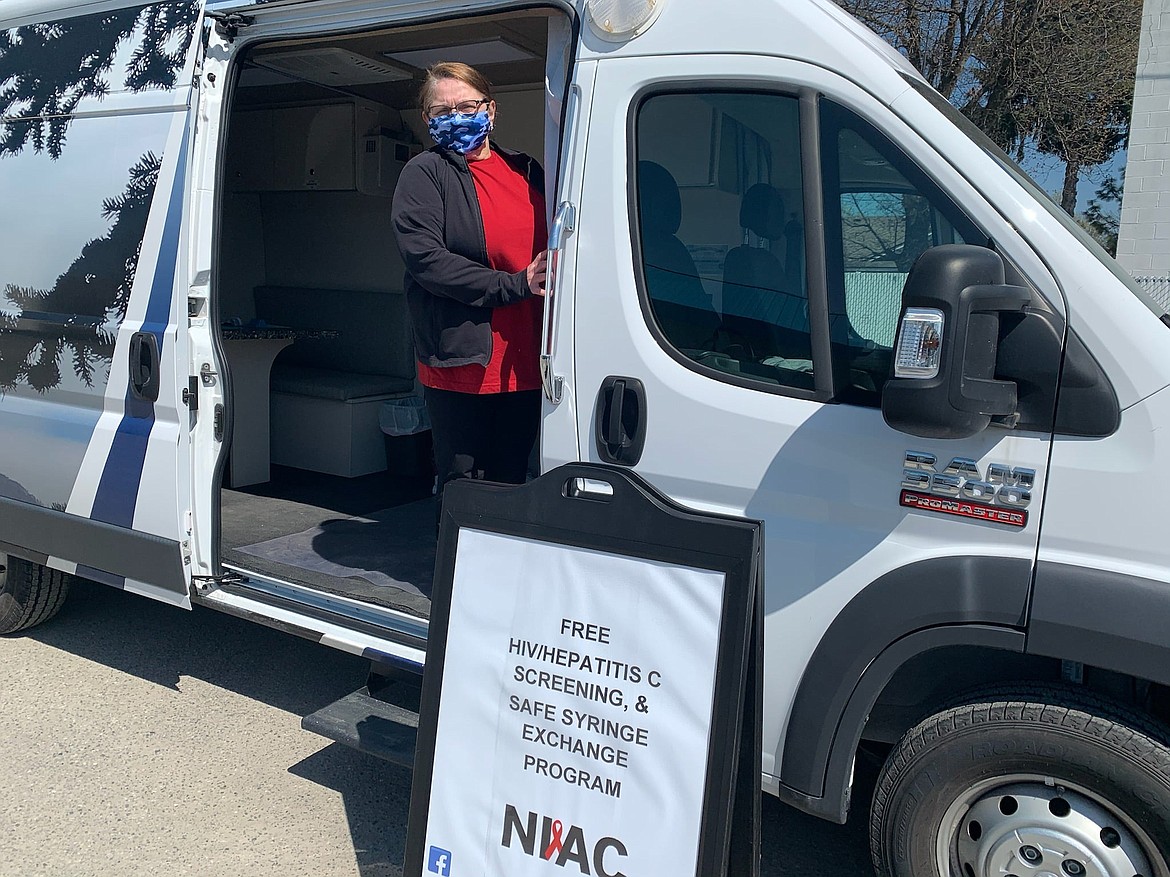AIDS Coalition reaches out with new program
Of the approximately 1.2 million U.S. citizens with HIV, 14% — or one in seven — don’t know and need to be tested, studies show.
To reach those people during and after the COVID-19 pandemic, the North Idaho AIDS Coalition launched a mail-out HIV self-test program for residents in the 10 northernmost counties.
NIAC, a nonprofit organization, advocates for and raises awareness around HIV education, transmission, prevention and offers free services to help those who live with HIV or at risk of infection.
When the COVID-19 pandemic began, NIAC executive director Theresa Davis noticed a decline in people coming into the clinic for services or testing. But that decrease didn’t mean there was less need, she said.
Davis described the trend of decreased attendance as “medical distancing” where — especially in the early stages of COVID-19 — people were less likely to make appointments because of risk and social distancing.
“We have had people tell us that they’re not inclined to go to clinics as much as they used to be,” Davis said. “So we wanted to make the services convenient for them as well as accessible through COVID-19.”
Partnering with Walgreens, Davis said NIAC began piloting a mail-out HIV self-test that could maintain patient confidentiality but still reach individuals during the lockdown. Incorporated in mail-out services is “How-to Coaching,” harm reduction education, and safe syringe services.
“It’s innovative. It’s private, and it’s secure, which is huge,” Davis said. “We also offer them information in terms of PrEP, linkage to care, and some community services in their area.”
The discrete nature of NIAC is critical, she explained, because of the connotations around HIV. One of NIAC’s goals, Davis said, is advocating against and raising awareness of the stigma people who are at risk of HIV or have HIV can go through.
“The prejudice that comes with it is labeling an individual as part of a group that is believed to be socially unacceptable,” Davis said. “A couple of examples are believing only certain groups of people can get HIV, making moral judgments about people who take steps to prevent HIV transmission, and feeling that people deserve to get HIV because of their choices.”
Part of NIAC’s efforts to break that stigma is through open communication and education about HIV to normalize the subject. Through NIAC’s harm reduction education program, the organization aims to squash the fear of stigma with safe services and links to recovery.
“With every person who comes in to get our services, we educate them on the treatment of HIV as well as prevention methods,” Davis said. “I think one of the biggest challenges we face is getting the word out because we live in an area where some people in the counties we serve are hard to reach.”
To meet the needs of those residents, Davis said the NIAC Mobile Testing Unit travels to locations in Kootenai, Benewah, Bonner, Boundary, Shoshone, Lewis, Idaho, Nez Perce, Clearwater and Latah County with free HIV-related services.
Free resources offered at the MTU are:
• HIV and Hepatitis-C screening
• Behavioral risk counseling
• Community health and recovery service referrals
• Condoms and lubricants
• HIV and harm reduction education
• Syringe exchange and disposal
• Safe injection kits
• Pre-exposure prophylaxis (PrEP) referrals
Upcoming MTU locations are available on the NIAC website and include Kellogg, St. Maries, Bonners Ferry, Sandpoint and Latah County. The unit is also at the Heritage Health Street Medicine facility in Coeur d’Alene and Panhandle Health District locations in Kootenai, Benewah, Bonner, Boundary and Shoshone counties.
Other free NIAC services:
• Ryan White Part B — AIDS Drug Assistance, case management, and social, financial, dental, housing and food assistance referrals
• The HIV and Hep-C prevention programs provided by the MTU
• Housing Opportunities for People with AIDS/HIV (HOPWA)
• Harm Reduction Syringe Service Programs — Naloxone education and distribution, recovering services, and programs provided by the MTU
• A food pantry with nonperishable staples, personal hygiene products, and limited PPE for clients
• Project Filter — Idaho’s Tobacco Prevention and Control Program that offers free, confidential help to quit tobacco, chewing, or vaping
More information: northidahoaidscoalition.org or 208-665-1448.

